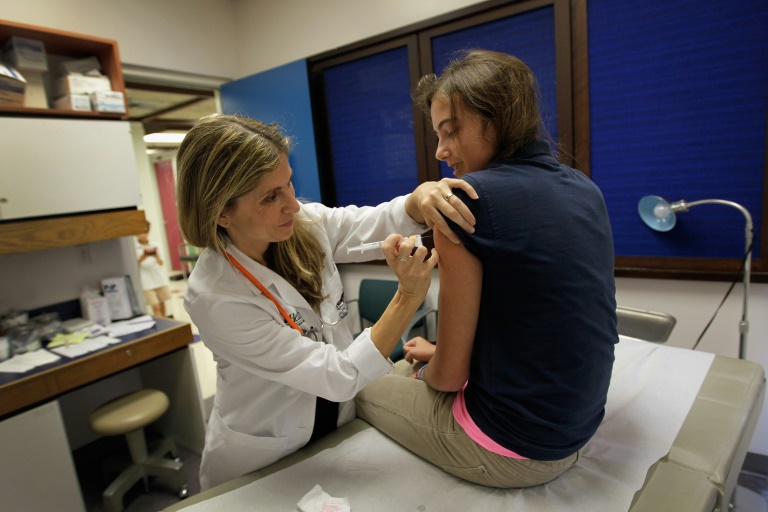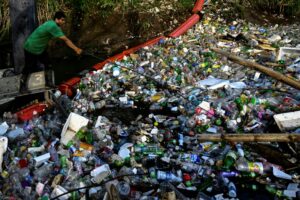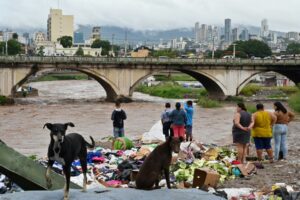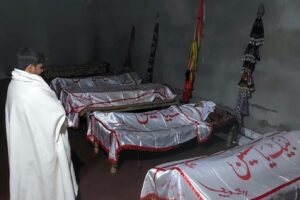Investigating why cancer rates are the highest in this part of the U.S.

Cervical cancer, which is caused by HPV — a common sexually transmitted infection — is preventable with reliable and safe vaccines – Copyright GETTY IMAGES NORTH AMERICA/AFP/File JOE RAEDLE
Academic Barbara Allen has received a $600,000 U.S. National Science Foundation grant to study illness rates in Louisiana’s so-termed ‘Cancer Alley’. Two decades ago Allen wrote a book on the topic called “Uneasy Alchemy,” referring to both the tensions and promises of experts working with local residents to further environmental justice.
Cancer Alley is an 85-mile stretch of land along the Mississippi River between Baton Rouge and New Orleans with more than 200 petrochemical plants and refineries, facilities that process chemicals derived from petroleum.
Here cancer and respiratory illness rates are said to be among the highest in the U.S., although state officials suggest their data does not support such a claim. However, the Environmental Protection Agency released the results of a study that found “significant evidence” that the state’s actions and inactions may have resulted in adverse health effects among the region’s Black community.
Allen indicates she is still discouraged by the area’s progress and the lack of official analysis of cancer rates among individuals living near petrochemical facilities. Consequently, the researcher is making plans to return to Louisiana.
Allen’s team will put the community at the centre of the research by offering workshops to residents. Residents will work with the team to analyse and interpret data and share their own insights and experiences.
One of the aims is to create an online manual that will enable other regions to replicate the process of producing data analyses from government sources. Team members hope their work will enhance researcher, community, and institutional capacity to continue this kind of collaborative science work relating to justice and equity.
Allen’s collaborators include Michelle Smith, director of Dillard University’s Minority Health and Health Equity Research Centre, and Alison Cohen, an epidemiologist at the University of California, San Francisco. The group also will train undergraduates to be researchers in their communities and will examine health data from government agencies, such as Medicaid and cancer registries, to explore resident health patterns and community well-being.
In terms of the importance of hearing from the community, Allen emphasizes “data doesn’t speak. People do…You can collect all of the data that you want. It can be good and it could be nonbiased. But if it’s not community science and it doesn’t come from their questions — better yet how they speak about it and in their voice — if they didn’t help make and guide it, then it’s not going to be used in their advocacy for change.”
Allen notes how the methodology of participatory health science has become popular in countries like France and she hopes for success in Louisiana.
Investigating why cancer rates are the highest in this part of the U.S.
#Investigating #cancer #rates #highest #part





